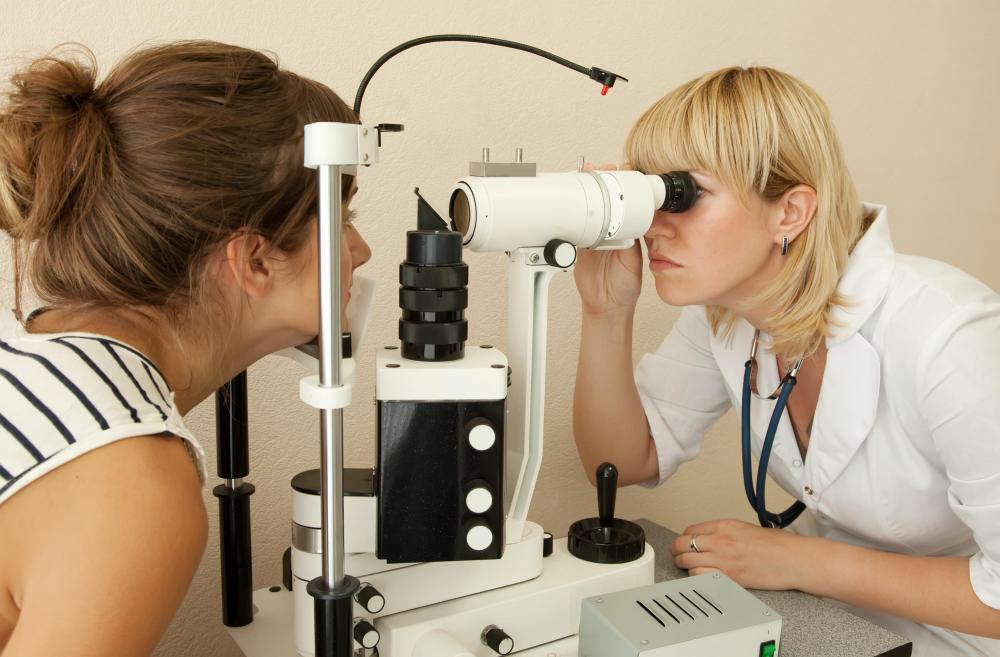At WiseGEEK, we're committed to delivering accurate, trustworthy information. Our expert-authored content is rigorously fact-checked and sourced from credible authorities. Discover how we uphold the highest standards in providing you with reliable knowledge.
How do I Choose the Best Retinitis Pigmentosa Treatment?
As of 2011, no retinitis pigmentosa treatment is available. Some studies indicate that taking 15,000 International Units (IU) of vitamin A per day may slightly slow the progression of the disease. These tests are not definitive and large doses of this vitamin can cause toxicity, so check with your doctor before taking it. Microchip implants, which are devices that are surgically embedded within the retina, are being developed to treat the blindness which results from this disease. A person with retinitis pigmentosa should also wear sunglasses to safeguard the eyes from the effects of ultraviolet light.
Retinitis pigmentosa is a progressive eye disease involving the retina. Damage to the cells responsible for night vision is most commonly seen. Symptoms involve a loss of night vision and reduced peripheral vision. As the disease worsens, central vision will be reduced. Symptoms typically are first noted in early childhood, but the development of serious vision loss is not manifested until early adulthood.

Very little is known about the cause of the condition except that it runs in families. Scientists have identified 32 associated genes. Approximately one percent of the population is considered to be a carrier of the trait, but the actual disease is seen in only a fraction of that one percent.
A study was undertaken to ascertain the effectiveness of a microchip for retinitis pigmentosa treatment. The right eye of six patients with the disease was implanted with a microchip, while the left eye was left untreated. The evaluations that succeeded the implant surgery ranged from six to 18 months. No adverse effects were noted and visual acuity improved in all patients. Researchers concluded that further clinical studies are needed to determine the safety and efficacy of this treatment.

Although this microchip retinitis pigmentosa treatment can't heal the damage caused by the condition, it can enhance functionality. Early research involving the effects of these implanted devices in blind patients indicate that they can restore certain visual abilities. Included is the capacity to recognize everyday objects and read large print with the aid of glasses. Other benefits involve being able to identify others and enabling patients to function within a small visual field.

Other possibilities being explored for retinitis pigmentosa treatment include eye therapy and engineered substances derived from certain types of algae. People in the the early stages of this disease might benefit from occupational therapy. This treatment can maximize independence and assist in making lifestyle changes that the condition necessitates. The use of low-vision devices that enlarge the view of objects may also be helpful.
AS FEATURED ON:
AS FEATURED ON:














Discussion Comments
I have retinitis pigmentosa (RP) and have been using a combination pill made by Ophthalmic Nutrition that contains Vitamin A 15,000 IU, DHA 200 mg and Lutein 12mg. Works great for me!
Post your comments